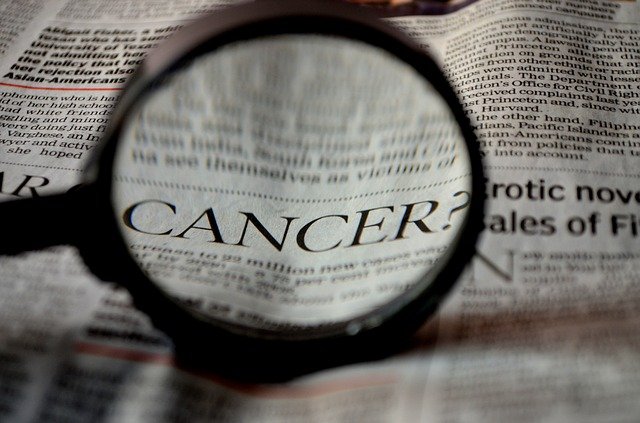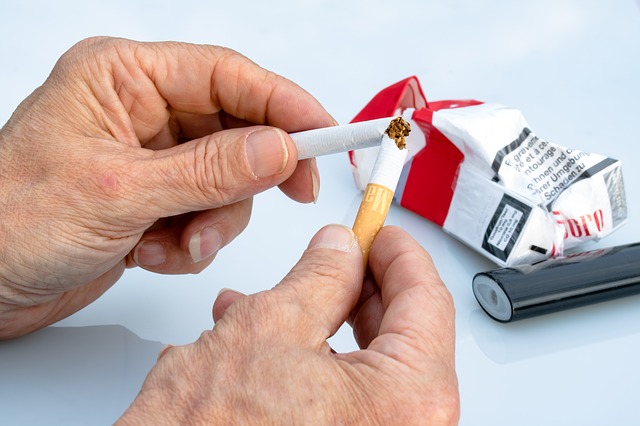Lung cancer is Australia’s biggest cancer killer. But, unlike other forms of cancer there is a lack of awareness about this disease, their signs and symptoms as well as about the effective risk reduction and treatment options available for patients.
This Lung Cancer Awareness Month, our medical team from Epping Family Medical & Specialist Centre hopes to debunk some of these topics associated with lung cancer and how visiting a GP can be effective in helping you or your loved one to quit smoking for a healthier future.
Tobacco smoking and Lung Cancer
Thankfully, we know the major cause of lung cancer – the use of tobacco.
The lungs in our body are two spongy organs in the chest that take in oxygen, when we inhale and release carbon-di-oxide when we exhale.
Since tobacco contains over 7000 types of chemicals including carcinogens that are known to cause cancers, use of tobacco blocks this natural flow of oxygen and carbon-dioxide in our body causing a myriad of health issues including lung cancer.
Smoking also causes inflammation in the small airways and tissues of your lungs and continued smoking can build-up scar tissues which lead to physical changes in your lungs, making it difficult for smokers to breathe and perhaps causing lung cancer in the future.
Thankfully, we know the major cause of lung cancer – the use of tobacco.
According to the Mayo Foundation for Medical Education and Research, people who smoke regularly have the greatest risk of lung cancer, although lung cancers are also diagnosed in people who have never smoked.
Recognise the signs and symptoms of lung cancer

One of the worse things about lung cancer is that there are no noticeable symptoms until the cancer starts spreading. However, there are still likely signs and symptoms that may need a visit to a GP or perhaps a need for a lung cancer screening to confirm the disease.
It is important to be able to recognise the commonly seen signs and symptoms of lung cancer and visit your doctors when you first notice these symptoms.
If your cancer is diagnosed early, the treatment is more likely to be successful and effective.
- Headaches are one of the most commonly seen early signs of lung cancer. The headaches can also lead to migraines in worse cases
- A cough that doesn’t go away quickly and builds up to get worse
- Unexplained loss of body weight can be associated with lung cancer along with loss of energy levels
- Loss of appetite
- Shortness of breath and changes in your breathing habit such as breath heavily while carrying out physical work
- Chest pain that is persistent within the same area
- Loss of energy levels and feeling tired and weak from time to time
- Wheezing when you breathe caused due to inflammation in the lungs
- If cancer starts spreading to nearby bones, your bones and muscles will start aching. The bone pain can be worse during the night and with movements.
Quitting smoking is hard, but with help and support, you can do it!

Quitting smoking is one of the best things anyone can do to reduce their risk of lung cancer as well as many other types of cancer.
Our experts at Epping Family Medical & Specialist Centre believe that quitting smoking is one of the most rewarding things a person can do and although it’s a difficult task, with help and support smoking can be given up for good.
Read through to know how GPs can help you stub out that last smoke.
1) GPs can prescribe a Nicotine Replacement Therapy
Nicotine is the addictive substance found in tobacco that causes people to continue to smoke.
Its replacement therapy aims to reduce that addiction and reduce your withdrawals that occurs when you stop smoking. GPs can prescribe this therapy in many forms including patches, tablets, gums or inhalers.
2) GPs can prescribe medications
GPs can prescribe medications like Bupropion to help reduce the effects of withdrawals. These medications work by blocking the nicotine receptors in the brain that makes smoking less enjoyable.
Only your doctor can decide if these medications are suitable for your use and also decide on their doses and how often they can be consumed.
3) Personalised support and encouragement
GPs can assist with counselling along with on-going pharmacotherapy to encourage smoking cessation. They can help with behavioral support along with referrals to more proactive support groups and such as Quitline, a counseling group or a tobacco treatment specialist.
4) Alternative pharmacotherapy
For more information on how GPs can help you quit smoking read, Support smoking cessation: A guide for health professionals by RACGP.
Other smoking cessation support services
Quitline Victoria – This Non-for-Profit organisation based out of Melbourne is a confidential telephone counselling service. They provide assistance, tips and strategies to help quit smoking. They operate from monday to friday from 8 am to 8 pm.
Quitcoach – This is another organisation that provides a personalised quitting plan based on your responses to their questions. This online tool will access your habit based on your responses and provide a management plan personalised for you.
Book an appointment with our GPs
Once you have decided to quit smoking, visit our Epping Family Medical and Specialist Centre and meet our GPs who can best advise on how to take the next step.
To make an online appointment, visit our Book Appointment page or alternatively call us at (03) 8402 0400 for further information.






